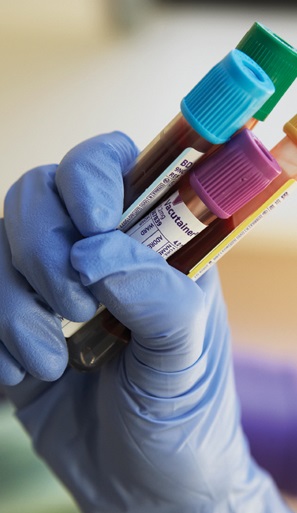Data issues in COVID studies
 While the COVID-19 pandemic saw a rapid rise in medical research and clinical trials, experts say cracks are beginning to emerge.
While the COVID-19 pandemic saw a rapid rise in medical research and clinical trials, experts say cracks are beginning to emerge.
There was an impressive response in clinical trials to the pandemic, but researchers have identified crucial research areas which were overlooked, such as there being no trials on public health communication or community transmission prevention related to COVID-19.
In a study published in the Medical Journal of Australia, University of Sydney researchers state extensive media coverage and public opinion may have misled research prioritisation.
For instance, there may have been too many uncoordinated hydroxycholorquine trials, randomising too many patients to non-effective or even potentially harmful treatments.
There was also a concerning lack of collaboration between clinical trials, with 80 percent of trials stating they are not planning to share data.
Researchers are calling for infrastructure to make collaboration easier for Australian researchers, such as funding for data-sharing efforts and minimum standards for collaboration and data sharing.
“In Australia, the COVID-19 pandemic has led to rapid changes in some processes including fast-tracked funding, ethics approvals, trial registration, and publication,” says lead author Dr Anna Lene Seidler.
“Whilst research scale up has been impressive, some of these trials may not have been sufficiently strategic or collaborative, which may have led to taxpayer-funded research waste.
“Going forward, we need protocols to fast-track procedures in emergency scenarios that balance both rigour and urgency.”
The researchers also found that most treatment trials were too small to detect reliably if a treatment could prevent COVID-19 deaths.
“The median target sample size was small (150), meaning that, individually, trials were likely underpowered to detect differences in clinically important outcomes,” wrote Dr Seidler and colleagues.
“None of the identified treatment trials are sufficiently powered to detect typical differences in mortality; and with low case numbers in Australia, it seems unlikely that a single trial could obtain such large sample sizes.”
Trial organisers seem reluctant to share data, despite several high-profile calls for collaboration and data sharing across studies, a development the researchers described as “concerning”.
“These calls seem to pass largely unheard among triallists in Australia, with 80 per cent (41 trials) indicating they are not planning to share data.
“Frequently mentioned barriers to data sharing include a lack of understanding of the relevance, lack of resources to prepare data, insufficient academic recognition, and concerns about participant privacy, ethics approval and data misuse.
“Too little has happened in creating infrastructure and funding for rapid collaboration, advanced adaptive methodologies and data sharing.
“In future, with adequate funding for technological innovation, clinical trial registries may play a key role in automatically connecting similar trials and facilitating collaboration.
“The COVID-19 pandemic presents a unique opportunity to improve collaborative infrastructure and methodologies, and advance future research across all health areas.”







 Print
Print